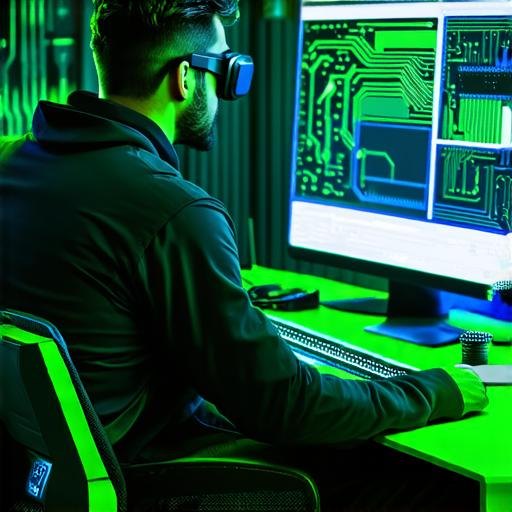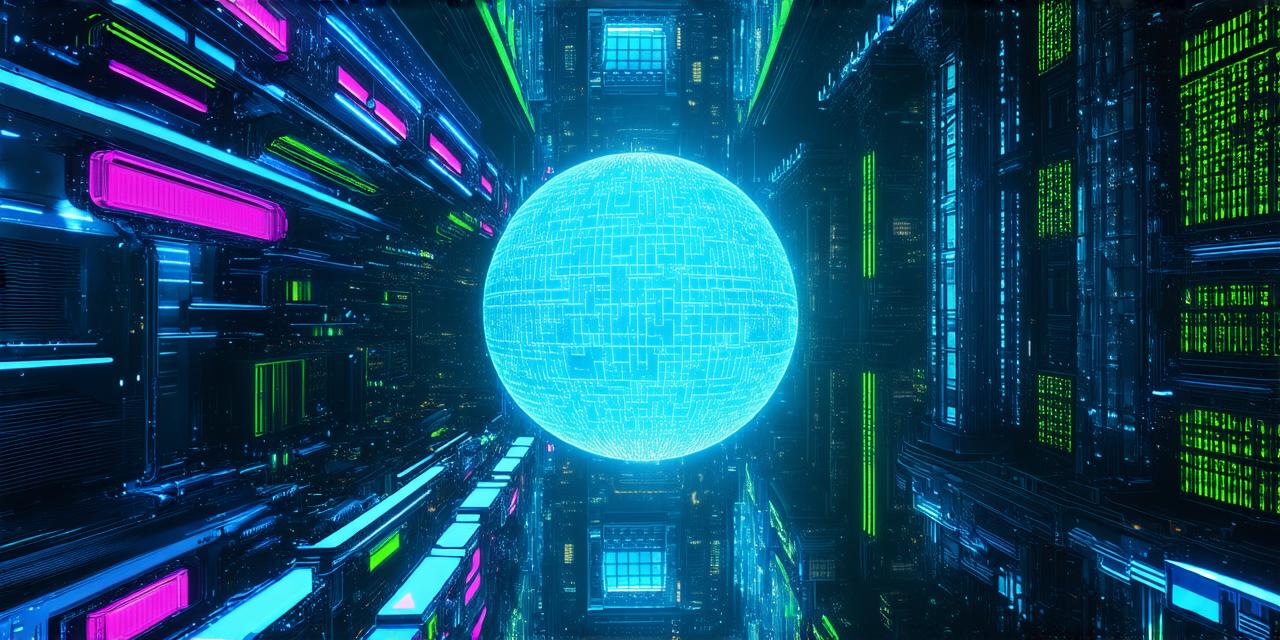Introduction:
The concept of virtual worlds and digital immersion has been around for decades, but with advancements in technology, we are now seeing a new era of interactive and engaging experiences. The term "metaverse" refers to a shared virtual space where people can interact, socialize, work, and play in a fully immersive environment. In this article, we will explore the concept of the metaverse, its history, and what it means for the future of technology and human interaction.
What is the Metaverse?
At its core, the metaverse is a virtual reality (VR) experience that combines elements from gaming, social media, and other digital experiences to create a fully immersive, shared space where people can interact with each other in real-time. The metaverse is not limited to any particular platform or software but can be accessed through various devices, including smartphones, computers, and VR headsets.
The metaverse allows users to create and customize their avatars, which represent them in the virtual world. These avatars can be used for a wide range of activities, from shopping and socializing to gaming and virtual events. The metaverse also features various environments and settings that users can explore, including cities, natural landscapes, and even outer space.
History of the Metaverse
The concept of virtual worlds dates back to the 1960s, when computer scientists began developing immersive simulations that could be experienced through VR headsets. However, it wasn’t until the early 2000s that we saw the first real-world applications of the metaverse in gaming.
One of the earliest examples of the metaverse is Second Life, an online virtual world that was launched in 2003. It allows users to create their own avatars and interact with each other in a variety of settings, including cities, beaches, and even outer space. While Second Life has been largely focused on gaming and socializing, it has also been used for educational purposes and virtual events.
Another example is the Decentraland platform, which was launched in 2017 as a blockchain-based metaverse. It allows users to create their own digital assets and sell them in the virtual marketplace. Decentraland has also been used for virtual events, including music festivals and art exhibitions.
The Future of the Metaverse
As technology continues to advance, we can expect to see even more exciting developments in the metaverse. Some potential applications include:
- Virtual Workplaces
Virtual workplaces are becoming increasingly popular as companies look for ways to reduce costs and increase productivity. In a virtual workplace, employees can interact with each other and their work in real-time, regardless of their physical location. This allows for more flexible work arrangements and greater collaboration between teams.2. Virtual Education
Virtual education is another area where the metaverse could have a significant impact. With virtual reality, students can experience educational content in a fully immersive way that enhances their learning experience. This can be particularly useful for subjects like science, history, and art, which require a lot of visualization and interactive learning.
3. Virtual Healthcare
Virtual healthcare is already being used to treat certain conditions, such as anxiety and depression. In the metaverse, virtual reality can be used to simulate real-life medical procedures, allowing doctors to practice their skills in a safe environment. This could also allow for remote consultations, reducing the need for patients to travel long distances for treatment.

4. Virtual Events
Virtual events are becoming increasingly popular as we look for ways to connect with people from around the world. In the metaverse, virtual events can be held in real-time, allowing attendees to interact with each other and participate in activities like live music performances and art exhibitions.
Case Studies:
Let’s take a look at some real-world examples of how the metaverse is being used today:
1. Decentraland
Decentraland is a blockchain-based metaverse platform that was launched in 2017. It allows users to create their own digital assets and sell them in the virtual marketplace. Decentraland has also been used for virtual events, including music festivals and art exhibitions. For example, the world-renowned musician David Guetta hosted a live concert in Decentraland in 2019, which was attended by thousands of people from around the world.
2. Splinterlands
Splinterlands is a blockchain-based metaverse platform that was launched in 2018. It combines elements of gaming and collectibles, allowing users to create and trade digital creatures called "splinters." Splinterlands also features a virtual marketplace where users can buy and sell splinters, as well as participate in games and competitions.
- VRChat
VRChat is a social media platform that was launched in 2017. It allows users to interact with each other in a fully immersive environment, using avatars and virtual reality headsets. VRChat has become particularly popular among gamers and content creators, who use the platform to share their creations and connect with like-minded individuals.Expert Opinions:
To get a better understanding of the metaverse, we spoke with Dr. Nicholas A. Yee, an associate professor at the School of Information at Stanford University. Dr. Yee has been studying virtual worlds and digital immersion for over a decade and has written extensively on the topic. Here are some of his insights:
"The concept of the metaverse is still in its early stages, but it has the potential to revolutionize the way we interact with each other and with technology," says Dr. Yee. "Virtual reality and augmented reality are going to continue to advance, allowing us to create more immersive and engaging experiences."
Dr. Yee also notes that the metaverse could have a significant impact on social interactions and relationships:
"In the metaverse, people can interact with each other in a way that is not possible in the physical world. This could lead to new forms of social connections and communities, as well as challenges related to privacy and identity."FAQs:
Here are some frequently asked questions about the metaverse:
1. What devices do I need to access the metaverse?
The metaverse can be accessed through various devices, including smartphones, computers, and VR headsets. However, for a fully immersive experience, a high-end VR headset is recommended.
2. Is the metaverse only for gamers?
No, the metaverse is not limited to gaming. It can be used for a wide range of activities, including socializing, shopping, and even virtual events
